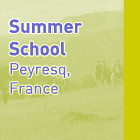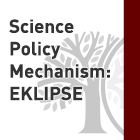TDWG 2016 Annual Conference
| When |
Dec 05, 2016 01:00 AM
to
Dec 09, 2016 01:00 AM |
|---|---|
| Where | Santa Clara de San Carlos, Costa Rica |
| Contact Name | See conference website |
| Attendees |
Registered delegates |
| Add event to calendar |
|
Update: Call for abstracts -- The organisers invite abstracts for contributions to the conference including oral presentations, computer demonstrations, lightning talks, and posters. The deadline for abstract submission is 6 September 2016. There was previously a call for symposia and workshops (the deadline was 11 April 2016. Accepted symposia and workshops are listed on the conference website).
Biodiversity Information Standards (TDWG), also known as the Taxonomic Databases Working Group, is a not for profit scientific and educational association that is affiliated with the International Union of Biological Sciences.
TDWG was formed to establish international collaboration among biological database projects. TDWG promoted the wider and more effective dissemination of information about the World's heritage of biological organisms for the benefit of the world at large. Biodiversity Information Standards (TDWG) now focuses on the development of standards for the exchange of biological/biodiversity data.
About the 2016 conference
Standards for the description and exchange of biodiversity information help promote research, support decision-making for conservation and planning, and provide a means of communicating observations by both professional and citizen scientists across taxa and political boundaries. TDWG standards are an integral foundation of the largest biodiversity information sources, but given the wealth and diversity of information collected for plants, animals, and fossils, the need remains to extend and refine the concepts required to achieve greater integration for the discovery of knowledge and its use in biodiversity conservation.
This year, TDWG is focusing its annual meeting not only on supporting research, decision making, and communication of biodiversity information, but also on how standards can support innovative research. Scientific innovations often 'stand on the shoulders of giants' but they can also be disruptive, causing major changes in the way that science works. To what extent do our standards promote innovation, and does the most innovative research show us where our standards need to be refined and extended? Current research both in Computer Science (e.g., deep learning, computer vision, ambient computing) and Biodiversity Sciences offers excellent opportunities for multidisciplinary innovative synergies among researchers, decision makers, students, and citizen scientists.







